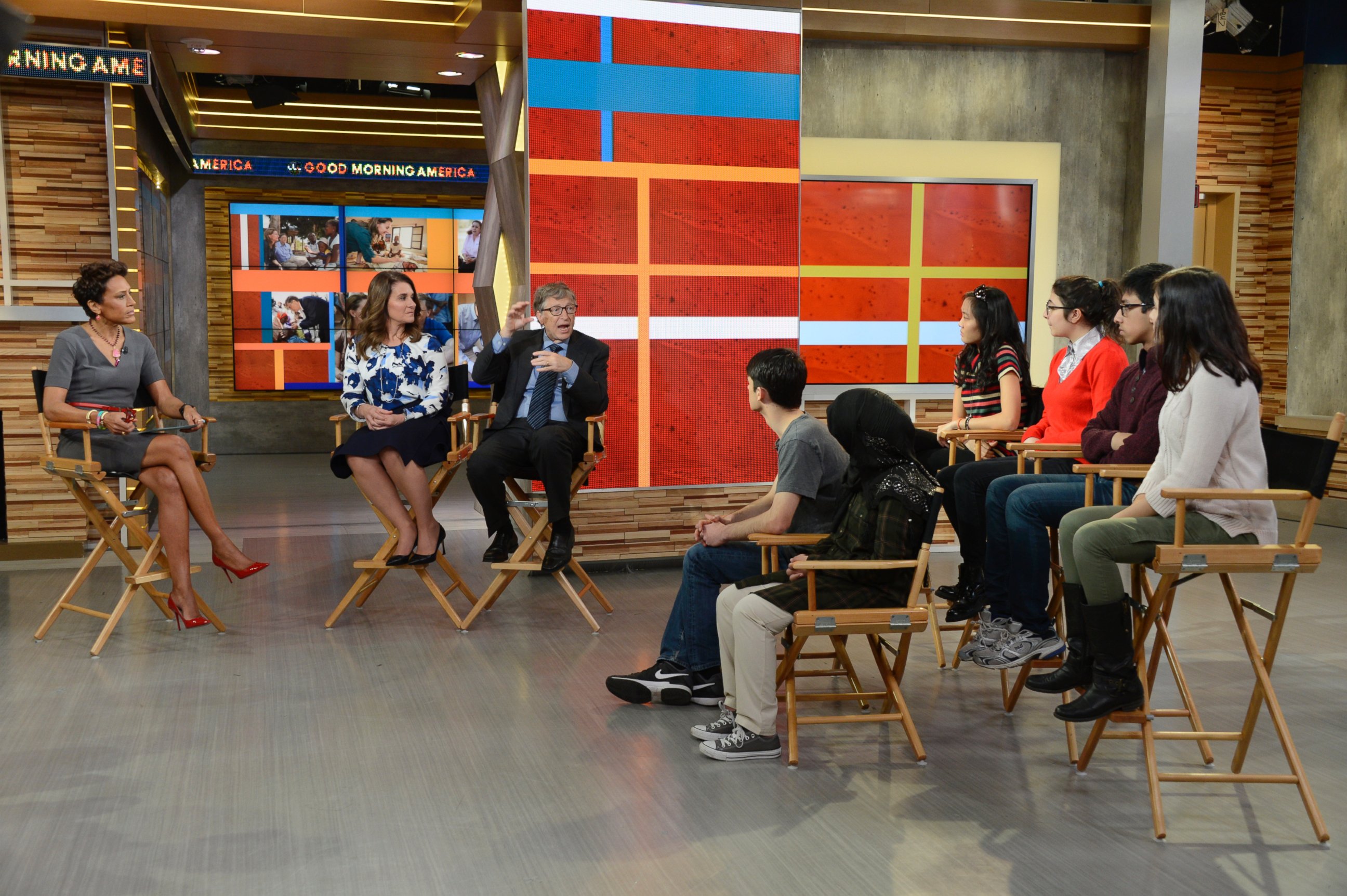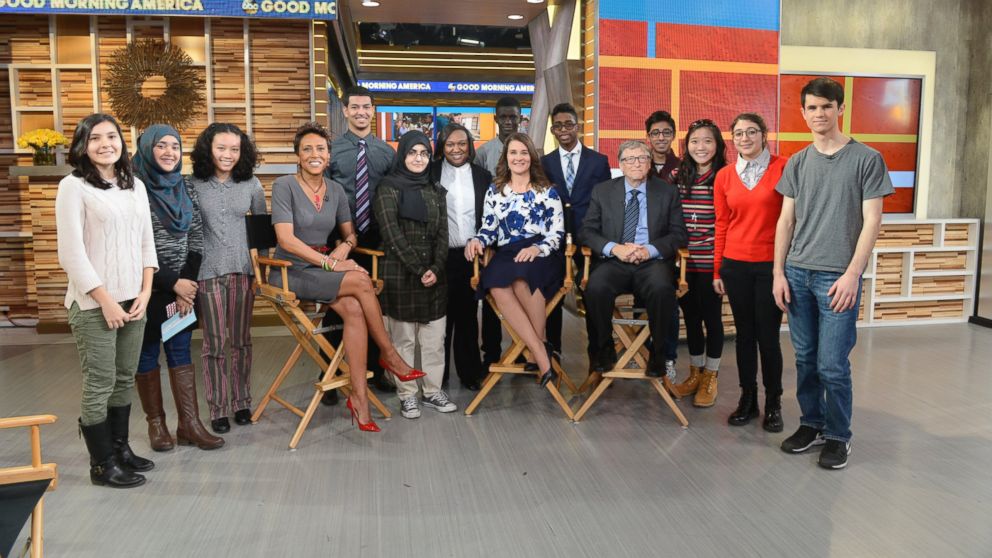Bill and Melinda Gates Urge Teens to ‘Get Involved’ in Annual Letter
— -- At the beginning of every year, Bill and Melinda Gates publish a letter in which they outline the goals of their philanthropic organization. Their latest letter is written directly to high school students, the group they say will ultimately solve the world’s biggest problems.
In the letter published on Monday, the couple reveals what superpower they would choose, writing that they were asked this question recently by high school students in Kentucky. Bill wrote that he would want “more energy,” and his letter addressed the critical needs of the “energy poor” world.
Click HERE to read Bill and Melinda Gates’ annual letter.
He said in his letter that poverty wasn’t just about lacking finances.
“It’s about the absence of the resources the poor need to realize their potential,” he wrote, noting that more than one billion people around the world did not have electricity.
Melinda said she would want more time, and she wrote about addressing the needs of women around the world. Even in 2016, she wrote, girls and women “will spend hundreds of thousands more hours than boys doing unpaid work simply because society assumes it’s their responsibility.”

Bill and Melinda Gates spoke to “GMA" co-anchor Robin Roberts about their letter. The couple was in the Times Square studio, where several teens from the New York Academy of Sciences’ Global STEM Alliance and iMentor had also gathered to speak with them.
When Roberts asked Bill why this year’s letter was directed to teens, and he said it was because young people would be tasked with finding the answers to the world’s most pressing problems.
“So it's the young generation that's got the innovation and the perspective that'll help drive what probably will take a generation or more to fully achieve,” Bill said.
Roberts asked Melinda about the outlook for young women.
“If you poll our young teens today, they think that women are going to be different in the home 15 years from now, different than their grandmother's generation. But it's actually not true. Especially when you look at this unpaid work that women do at home,” she said.
That unpaid work has an impact, she said.
“When I talk about unpaid work, it's some of the caring things we want to do at home, like care for our children or the elderly. But it's things like chores. And if you are spending your time, particularly in the developing world, carrying water, chopping wood, or even in the U.S. doing laundry or chores, it means you don't reach your potential,” she noted.
Bill explained his wish for more energy.
“Well, energy is probably more fundamental than people realize. Life started really improving a few hundred years ago when we got energy. And so the idea that you can just flip that light switch, that's pretty magical. We all take that for granted. And yet there's several billion people who don't have it,” he said.
The students had lots of questions.




